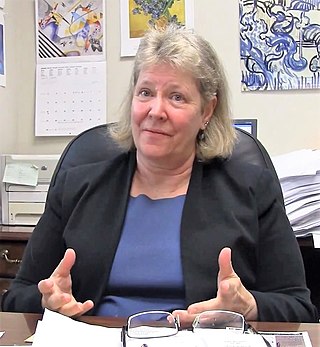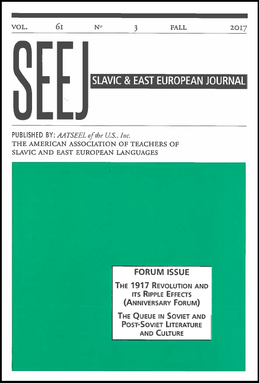
Rudolf Emil Kálmán was a Hungarian-American electrical engineer, mathematician, and inventor. He is most noted for his co-invention and development of the Kalman filter, a mathematical algorithm that is widely used in signal processing, control systems, and guidance, navigation and control. For this work, U.S. President Barack Obama awarded Kálmán the National Medal of Science on October 7, 2009.

Paulo Reglus Neves Freire was a Brazilian educator and philosopher who was a leading advocate of critical pedagogy. His influential work Pedagogy of the Oppressed is generally considered one of the foundational texts of the critical pedagogy movement, and was the third most cited book in the social sciences as of 2016 according to Google Scholar.
Victor J. Vitanza is a Professor of English at Clemson University. He is the former Director of the interdisciplinary-transdisciplinary Ph.D. program in Rhetorics, Communication, and Information Design, which is situated in the College of Architecture, Arts, and Humanities.

Juha Suoranta is a Finnish social scientist, and public intellectual. He is currently professor in adult education at the University of Tampere. Previously he worked as professor of education at the University of Lapland (1997–2004), and Professor of Adult Education at the University of Joensuu (2004–2006). He is also adjunct professor in music education at the Sibelius Academy, Helsinki, and in media education at the University of Tampere. In sum he has published 38 books and umpteen scientific articles.
In modern usage, the term grammatology refers to the scientific study of writing systems or scripts. This usage was first elucidated in English by linguist Ignace Gelb in his 1952 book A Study of Writing. The equivalent word is recorded in German and French use long before then. Grammatology can examine the typology of scripts, the analysis of the structural properties of scripts, and the relationship between written and spoken language. In its broadest sense, some scholars also include the study of literacy in grammatology and, indeed, the impact of writing on philosophy, religion, science, administration and other aspects of the organization of society. Historian Bruce Trigger associates grammatology with cultural evolution.
Craig Saper is Professor of Language, Literacy, & Culture at the University of Maryland Baltimore County (UMBC).
Electracy is a theory by Gregory Ulmer that describes the skills necessary to exploit the full communicative potential of a new electronic media such as multimedia, hypermedia, social software, and virtual worlds. According to Ulmer, electracy "is to digital media what literacy is to print". It encompasses the broader cultural, institutional, pedagogical, and ideological implications inherent in the major societal transition from print to electronic media. Electracy is a portmanteau of "electricity" and Jacques Derrida's term "trace".

Sugata Mitra is an Indian computer scientist and educational theorist. He is best known for his "Hole in the Wall" experiment, and widely cited in works on literacy and education. He is Professor Emeritus at NIIT University, Rajasthan, India. A Ph.D. in theoretical physics, he retired in 2019 as Professor of Educational Technology at Newcastle University in England, after 13 years there including a year in 2012 as visiting professor at MIT MediaLab in Cambridge, Massachusetts, USA. He won the TED Prize 2013.
Shirley R. Steinberg is an educator, author, activist, filmmaker, and public speaker whose work focuses on critical pedagogy, transformative leadership, social justice, and cultural studies. She has written and edited numerous books and articles about equitable pedagogies and leadership, urban and youth culture, community studies, cultural studies, Islamophobia, and issues of inclusion, race, class, gender, and sexuality. Steinberg was the Research Chair of Critical Youth Studies at the University of Calgary for two terms, executive director of the Freire Project freireproject.org, and a visiting researcher at University of Barcelona and Murdoch University. She has held faculty positions at Montclair State University, Adelphi University, Brooklyn College, The CUNY Graduate Center, and McGill University. Steinberg directed the Institute for Youth and Community Research at the University of the West of Scotland for two years.
Internet Invention is a book by Gregory Ulmer. The book describes Ulmer's definition of "electracy" and leads readers through to make more activities that ask them to examine their interactions with four discourses, which Ulmer labels career, family, entertainment, and community.

Jon McKenzie is a performance theorist, media maker, and transdisciplinary researcher and teacher at Cornell University. He is founder of the StudioLab pedagogy and former director of DesignLab at the University of Wisconsin-Madison. McKenzie's main interests are in new media, performance theory, and the role of art and technology in cultural research, contemporary processes of globalization, and emerging forms of social activism.

The Digital Writing and Research Lab (DWRL) is a research lab at The University of Texas at Austin, United States, dedicated to the identification and promotion of twenty-first-century literacies. These literacies range from navigating online newsfeeds and participating in social networking sites to composing multimedia texts that require producing, sampling, and/or remixing media content.

The Precarpathian National University is a public research university in Ivano-Frankivsk. It is one of the oldest institutions of higher education in Western Ukraine.

Bal des Quat'z'Arts was a Parisian annual ball, the first held in 1892 and the last in 1966. The event was organised by Henri Guillaume, Professor of Architecture at the École nationale supérieure des Beaux-Arts for students of architecture, painting, sculpture, and engraving. The first ball was held in 1892 in Montmartre. It was modest when compared with later ones, and it was considered a success, though it was immediately put into the hands of organizers. The second event was a costume ball held 9 February 1893 at the Moulin Rouge; along with merriment and drinking. Nude models walked about as living paintings and a nude woman was noted to be standing on a table at midnight. A lawsuit arose thereafter.
Linda Dement is an Australian multidisciplinary artist, working in the fields of digital arts, photography, film, and writing non-fiction. Dement is largely known for her exploration of the creative possibilities of emergent technologies such as the CD-ROM, 3-D modelling, interactive software, and early computing.

Kathleen Blake Yancey is the Kellogg W. Hunt Professor of English at Florida State University in the rhetoric and composition program. Her research interests include composition studies, writing knowledge, creative non-fiction, and writing assessment.
Litteraria Pragensia Books (LPB) is an independent press based at the Centre for Critical and Cultural Theory at the Philosophy Faculty of Charles University in Prague, Czech Republic. Active since 2002, LBP has been periodically releasing new titles from the world of contemporary poetics, literature, critical theory & cultural studies. It is staffed by an international editorial board of professors, including Louis Armand (writer) (Prague), Michael Groden, Marjorie Perloff (Stanford), Ondrej Pilny (Prague), Martin Prochazka (Prague), Jean-Michel Rabaté (Pennsylvania), and Clare Wallace (Prague). 2012 marked the release of LPB's fortieth book title. Additionally, LPB annually publishes the international poetics and arts magazine VLAK.
Mark Amerika is an American visual artist, theorist, novelist and professor of Art and Art History at the University of Colorado. He is a graduate of the Literary Arts program at Brown University, where he received his MFA in creative writing in 1997.

The Slavic and East European Journal(SEEJ) is a major peer-reviewed academic journal publishing original research and review essays in the areas of Slavic and East European languages, literatures, cultures, linguistics, methodology, and pedagogy, as well as reviews of books published in these areas.









